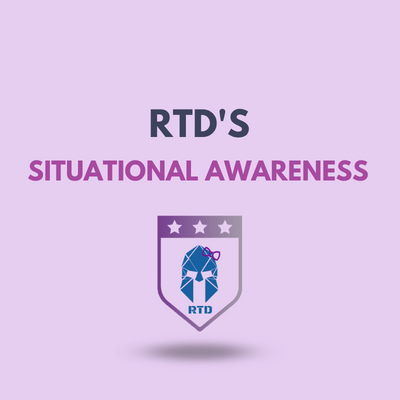Recognizing the Signs of Domestic Violence: How to Help Someone in Need
Domestic violence is a pervasive and serious problem that affects millions of people worldwide. Unfortunately, many cases of domestic violence go unreported, leaving victims trapped in abusive relationships and without the help they need to escape. As a friend, family member, or concerned individual, it can be difficult to know what to do if you suspect someone is experiencing domestic violence. In this article, we'll discuss the signs of domestic violence, the steps you can take to help, and the resources available for victims.
Signs of Domestic Violence
Domestic violence can take many forms, including physical, emotional, verbal, sexual, and financial abuse. It's important to be aware of the signs of domestic violence so that you can recognize when someone you know may be experiencing abuse. Here are some common signs of domestic violence:
- Physical injuries: Bruises, cuts, broken bones, and other injuries that are unexplained or inconsistent with the person's story.
- Isolation: The victim may be isolated from friends and family, and may seem to have lost touch with their usual social networks.
- Fear: The victim may seem fearful or anxious around their partner, and may be hesitant to speak freely or express themselves.
- Control: The abuser may try to control the victim's behavior, actions, and thoughts, often through manipulation, coercion, or threats.
- Changes in behavior: The victim may become withdrawn, depressed, or anxious. They may also exhibit changes in eating or sleeping habits.
Steps to Take if You Suspect Domestic Violence:
If you suspect that someone you know is experiencing domestic violence, it's important to take action. Here are some steps you can take to help:
- Reach Out and Offer Support: Let the victim know that you are there for them and that you are concerned about their well-being. Offer a listening ear and a safe space to talk.
- Educate Yourself: Learn about the signs of domestic violence and how to support victims. This will help you understand what the victim may be going through and how you can best help them.
- Be Non-Judgmental: It's important to approach the victim with empathy and understanding. Don't blame or criticize them for their situation, as this may further isolate them.
- Encourage the Victim to Seek Help: Encourage the victim to seek professional help, such as counseling or support groups. You can also help them identify resources in their community, such as domestic violence hotlines or shelters.
- Report Suspected Abuse: If you have reason to believe that the victim is in immediate danger, call 911 or your local emergency services. You can also report suspected abuse to the National Domestic Violence Hotline (1-800-799-7233) or your local law enforcement agency.
Resources for Victims:
There are many resources available for victims of domestic violence. Here are some options to consider:
- National Domestic Violence Hotline: The National Domestic Violence Hotline is a 24/7 hotline that provides support and resources for victims of domestic violence. They can be reached at 1-800-799-7233.
- Local Shelters and Support Groups: There may be local shelters and support groups in your area that provide services and resources for victims of domestic violence. You can search for these resources online or through your local social services agency.
- Counseling: Counseling can be a helpful resource for victims of domestic violence, providing a safe and supportive environment to work through trauma and develop coping strategies.
- Legal Support: Victims of domestic violence may need legal support, such as help obtaining restraining orders or filing for divorce. There are organizations that provide free or low-cost legal services to victims of domestic violence.
- Medical Care: is a crucial aspect of addressing domestic violence. Victims of domestic violence may need medical care for injuries sustained during abuse, including bruises, broken bones, and lacerations. It is essential for healthcare professionals to be aware of the signs of domestic violence and to offer support and resources to those who may be experiencing abuse.
Hospitals and clinics can play a vital role in identifying and addressing domestic violence. Healthcare providers are in a unique position to recognize the signs of abuse and to offer support and resources to victims. They can also document injuries and provide evidence for legal proceedings if necessary.
It is important for healthcare providers to create a safe and supportive environment for victims of domestic violence. This can involve asking sensitive questions about abuse in a private setting, listening non-judgmentally, and validating the victim's experience. Healthcare providers can also provide information about local resources, including shelters, counseling services, and legal advocacy.
In addition to physical injuries, victims of domestic violence may also experience mental health problems, including anxiety, depression, and post-traumatic stress disorder (PTSD). Healthcare providers can provide referrals to mental health professionals who can offer support and treatment for these issues.
One challenge in providing medical care to victims of domestic violence is that many victims may be hesitant to disclose abuse or may be afraid of retaliation from their abuser. Healthcare providers can play a role in creating a safe and supportive environment for victims to disclose abuse. This can involve using non-judgmental language, reassuring the victim that the abuse is not their fault, and providing information about local resources.
It is also important for healthcare providers to be aware of the legal and ethical considerations when treating victims of domestic violence. This can involve providing appropriate documentation and evidence for legal proceedings while respecting the victim's privacy and confidentiality.
Community-based organizations and advocacy groups can also play a role in providing medical care to victims of domestic violence. These organizations can provide training and support to healthcare providers, as well as offer direct services to victims, including advocacy, counseling, and support groups.
In addition to medical care, victims of domestic violence may also need assistance with other practical concerns, such as housing, financial assistance, and legal support. Community-based organizations and advocacy groups can provide resources and referrals for these issues.
Overall, medical care is an essential component of addressing domestic violence. Healthcare providers can play a critical role in identifying and supporting victims, as well as providing documentation and evidence for legal proceedings. Community-based organizations and advocacy groups can provide additional support and resources for victims and healthcare providers. By working together, we can create a safer and more supportive environment for victims of domestic violence.





